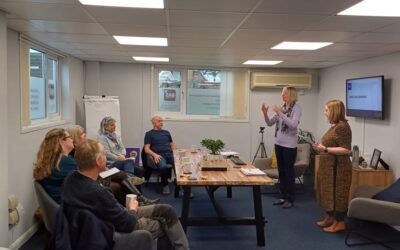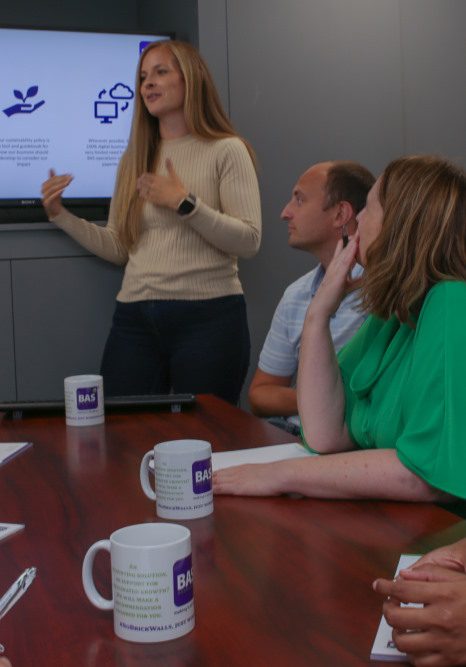“It is not the strongest species that survives, nor the most intelligent, but the one most responsive to change” Charles Darwin
The theory of evolution explains that organisms with the characteristics best suited to their environment are most likely to survive. The same principle applies to businesses as Charles Darwin’s theory of evolution.
The business landscape is constantly moving, changing, and evolving. Technological development is often leading this change and shaping the future of business. Further to this, in a landscape often dominated by generations Y and Z, the companies that stand still and don’t actively develop their business, will struggle to compete.
So, the theory of evolution adapted to the world of business means embracing change and continuous development to ensure your business is equipped with the right tools to succeed and avoid extinction.
“Pass the phonebook” said no-one in 2021 so why do 1.5 million SMEs in the UK still not have a website?
With so many SMEs lacking in the basics, such as a website, it’s easy to begin to question just how many businesses aren’t utilising the latest tools and technologies to stay relevant, stay competitive and stay front of mind, let alone some of core fundamentals when it comes to ensuring the long-term success of a business.
Clinging to outdated techniques and software when it comes to managing HR, marketing, sales, and client relationships is dangerous. Not only will an outdated approach hinder the growth of your customer base and business but if you are using the same systems, processes and software, the chances are that you have failed to adapt when problems have arisen.
This lack of “evolution” will directly impact your turnover, costs and bottom line along with the potential long-term effects on reputation, reduced potential of repeat business and difficulty retaining good members of staff.
So just how can you develop your business to have the best characteristics for your environment?
1. Proactively seek opportunities to evolve; don’t wait for natural selection!
If by survival we were “just” talking about meeting the needs of your customers, succeeding would be much simpler. The tough reality is that customer needs are evolving too! Then let’s add in technology, social and political elements into the mix and we have 4 strong components that are continuously reshaping the business landscape.
Unlike the animal kingdom businesses don’t have millions of years to evolve, so proactive development is key to success. The best way to do this is to take a step back from the day-to-day of your role within the business and the business itself and consider the four elements above.
At least once a year, but ideally every 3 months, ask yourself these 4 key questions:
- What could I do differently to avoid emerging threats?
- How could my offer (the products and/or services you provide) be tailored to appeal to my customers changing needs?
- What new opportunities have arisen that I could take advantage of?
- What new technology can help simplify and/or automate some of the manual processes in my business to reduce the scope of error, save time and improve customer experience?
2.Experimenting is essential – random mutations are not always a negative thing!
Creating a business culture that encourages and supports the generation of new ideas, without the fear of failing, will be a success. Of course, this doesn’t mean every idea or new piece of technology should be implemented but every idea, if not 100% appropriate, can still be used to inform change.
Keep investing in small scale experiments to see what works. Separate the hype that can come with the new idea or the latest piece of software from the practicality, benefit, and likely reward. Otherwise, it can become difficult to distracted and do too much at once or become overwhelmed and do nothing at all.
3.Perfection isn’t the end goal; Perfection doesn’t exist in nature!
Products and services will not be perfect. Create something that works and then refine as you learn. Putting something into practice today that is suitable is better than waiting for perfection which may occur at some point in the future or never.
If your business has an agile culture, a culture that believes in a shared vision and is prepared to embrace change, then business owners and key stakeholders can focus on training, collaboration, and continual improvement.
Without attributing blame or responsibility, every time something goes wrong ask yourself these simple questions:
- How has this issue arisen?
- How can this be avoided in the future?
- What investments need to be made to ensure improvement in this area?
4.The end goal isn’t today – evolution takes time!
The goal for your business is to meet the needs of today whilst evolving your business to ensure you are in demand in the future.
Take Netflix as an example. Netflix was launched in 1997. During this time Blockbuster was a significant market leader. The undisputed leader of the video renting industry was so blinded by the success of what they had today that they didn’t consider the future.
The CEO of Netflix approached Blockbuster on several occasions trying to sell the business for $50 million dollars, however Blockbusters just were not interested – they couldn’t see the industry evolving right in front of them.
In 2014 Blockbuster officially closed their doors for business and ceased trading. In 2020 Netflix is a $20 billion dollar company.
You don’t need to be the expert today, your business doesn’t need to be the market leader today, you don’t need to have all the answers now. For example, if you can see that new customers are starting to choose a competitor because they have someone trained in a specific field, respond to that change, and consider what the next stage of demand will be as a result of that customer need.
The larger the business, the more gradual change will be, and often, the harder they will find future planning due to all the different moving parts they need to consider.
SMEs have the added benefit of flexibility. So, whilst your business can’t and shouldn’t evolve rapidly overnight (the key here is evolution not revolution!) you can start adopting the 4 areas outlined above relatively quickly. Therefore, implementing change at a healthy rate.
By identifying the changing trends, conducting small-scale experiments, learning from mistakes, executing good plans, and looking ahead, you can increase your odds of survival and ensure long-term success.
For a complimentary Discovery Call to discuss the most appropriate level of support, a personalised quote and a guarantee of our best possible service, please complete the form below and one of our senior advisors will contact you.
Or if you prefer, please call 01296 681341 for our Wingrave Bucks Accountants office.






